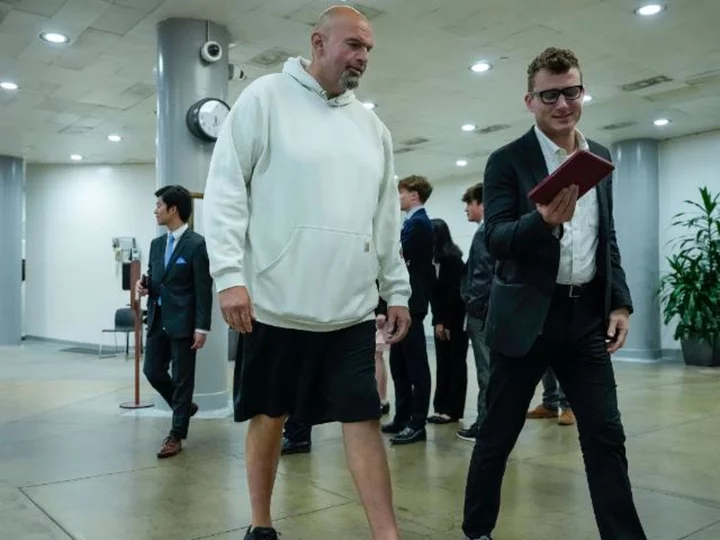The US Senate is getting a makeover. Majority Leader Chuck Schumer has told the sergeant-at-arms to no longer enforce the body's informal dress code for senators on the chamber floor. This means, for example, that male senators will no longer be forced to wear suits.
The move was seen, at least partially, in response to Pennsylvania Sen. John Fetterman's preference for wearing shorts and a hoodie.
While some have decried the move, the truth is that the Senate is just following the trends toward less formal attire that we're seeing throughout the workforce.
Take a look at a Gallup survey from earlier this year. Just 3% of men said they wear business dress (such as suits) on most days. That is down from 14% about a decade ago.
Women largely follow the same trend. Only 3% of them normally wore a suit or business clothing to work in 2023.
Even among white-collar workers (i.e., those with a college degree or those with a household income of at least $100,000 a year), a mere 5% wore a suit or business clothing to the office. Among those making at least $50,000, it's 3%. Back in 2007, over three times as many white-collar workers wore formal business attire to work.
Of course, moving away from formal attire can be seen not just as a trend toward where white-collar society has been heading, but as a move toward blue-collar society as well. Less than 1% of Americans without a college degree wear a suit or business clothing to work usually.
The turn away from formal attire at work comes as informality seems to be growing more and more acceptable. Earlier this year, Ipsos polled Americans on what type of clothing was appropriate for the workplace.
Amazingly, 58% of them said shorts (like the ones Fetterman wears) were appropriate in a professional work environment at least some of the time. That beat out the 41% who said they were never appropriate.
This is a long way from where we were in the middle of the 20th century. Back then, a mere 16% approved of men wearing Bermuda shorts to the office.
How about the sneakers that Fetterman often wears with his shorts? A solid majority of respondents in the Ipsos poll agreed that either running sneakers (73%) or dressier sneakers (about 86%) could be appropriate for a professional office environment at least some of the time.
The pollsters didn't ask about a hoodie specifically, but they did, however, ask about a baseball cap, which also gets at the idea of wearing something informal over your head. Again, a majority said it was at least sometimes appropriate to wear either a branded baseball hat (54%) or an unbranded one (56%) in the office.
Open-toe sandals were the only item Ipsos tested that got the thumbs-down -- 54% of Americans said they were never appropriate for a man to wear in the office. This is not part of the Fetterman's normal attire.
The swing toward informality could reverse itself, though that seems unlikely when you break down the responses by age. The vast majority of millennials and Gen Zers wear informal clothing to work, and they're also among the most supportive of such a dress code.
After all, this writer has worn a tie fewer than a half-dozen times to work in the past decade. His father wore a formal suit and a tie to work basically every day from 1953 to 2010.
The times, I guess, do change.

